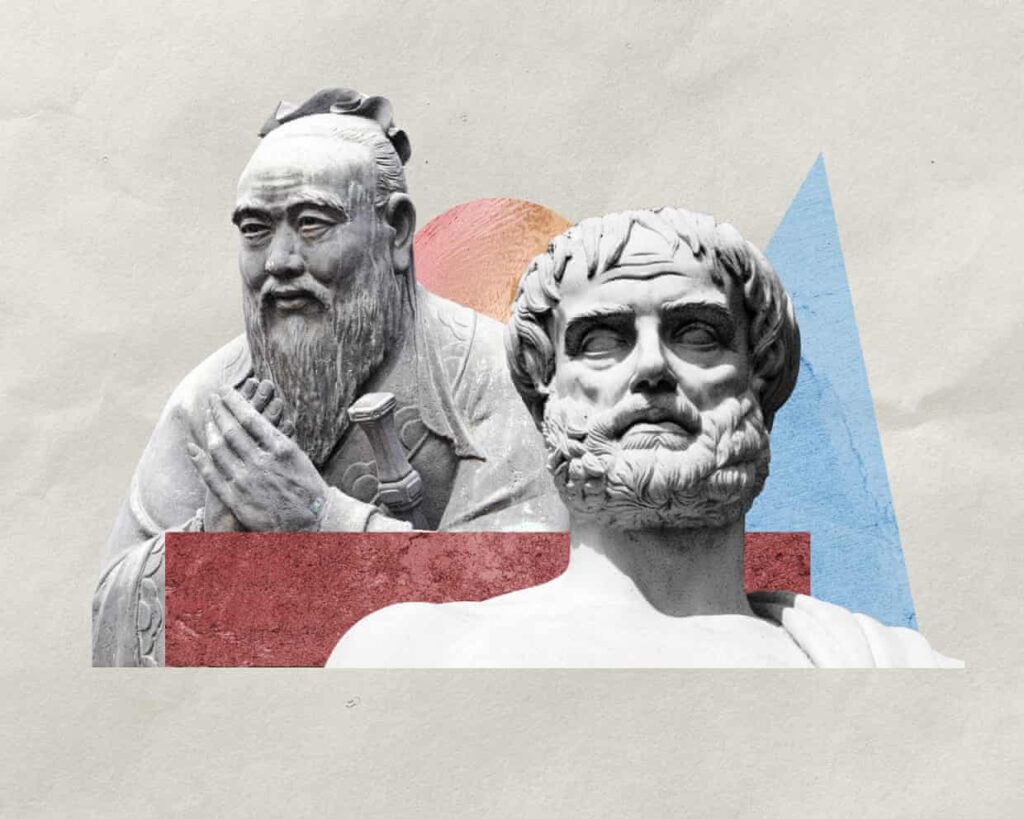
The concept of virtue, as understood through the lenses of renowned philosophers like Confucius and Aristotle, emphasizes moderation and genuine action over performative displays. This perspective resonates with many, particularly in today’s social media landscape, where the notion of “virtue signalling” has emerged as a point of contention.
The term “virtue signalling” is often attributed to James Bartholomew, yet the admonishments against self-aggrandizing displays of virtue trace back to ancient teachings. In Christianity, followers are urged to embody goodness through action, a principle highlighted by Jesus in his critiques of the Pharisees, who performed ostentatious acts of piety without genuine moral substance.
Confucius and Aristotle on Virtue
The teachings of Confucius, the sixth-century BCE Chinese philosopher also known as Kong Qiu, align closely with this sentiment. He advocated for a society founded on five essential virtues: jen (benevolence), chun tzu (exemplary person), li (correct conduct), te (moral force), and wen (cultivation of the arts). According to Confucius, these elements foster a community characterized by respect, integrity, and kindness.
Confucius posited that individuals in power must exhibit kindness and benevolence, while those in subordinate roles should demonstrate reverence and loyalty. His doctrine of li, or correct conduct, emphasizes the need for moderation in virtue. He argued that virtues must be enacted thoughtfully, avoiding extremes of excess or deficiency.
Similarly, Aristotle, the fourth-century BCE Greek philosopher, maintained that virtues exist in a mean between two vices. Courage, for instance, is virtuous when it serves the greater good, dependent on the specific context. Both philosophers underscore the importance of reasoned action over mere performance.
The Modern Dilemma of Virtue Signalling
In the contemporary context, the question arises: how should one navigate the act of promoting virtuous endeavors, especially on social media? Reflecting on my own experiences, I recall the teachings of Saint Augustine, who asserted that “humility is the foundation of all the other virtues.” Each time I make an online donation, I face a choice: whether to share my contribution publicly or remain silent.
Choosing not to announce my support can seem virtuous, but it may also hinder the potential for inspiring others to act. Research indicates that public commitment can lead to increased engagement in charitable causes. In this light, my reluctance may reflect an excessive adherence to humility, rather than genuine virtue.
Confucius’s teachings suggest that to become a chun tzu, or an exemplary person, one must extend their impact beyond a personal audience. By doing so, I can grow as a human being, with my heart and mind, or hsin, expanding to embrace the interconnectedness of all people.
Ultimately, expressions of virtue can serve as a reflection of a caring heart, resonating within a broader network of relationships.
Jackie Bailey, winner of the 2023 NSW Premier’s Literary Multicultural Award, encapsulates this journey. As an author and funeral celebrant, she guides families through profound experiences of death and dying, embodying the virtues she writes about. Her work reminds us that the true essence of virtue lies not in solitary acts, but in their ripple effects within the community.
In an age where the performance of virtue often overshadows its practice, the teachings of Confucius and Aristotle remind us to find the balance. Engaging in actions that promote good, while being conscious of their impact, fosters a more compassionate society.






